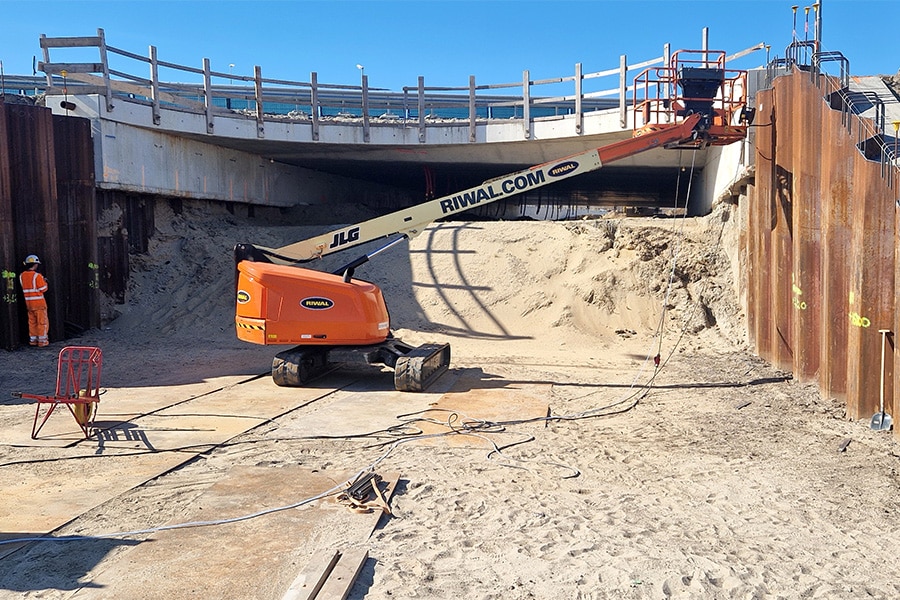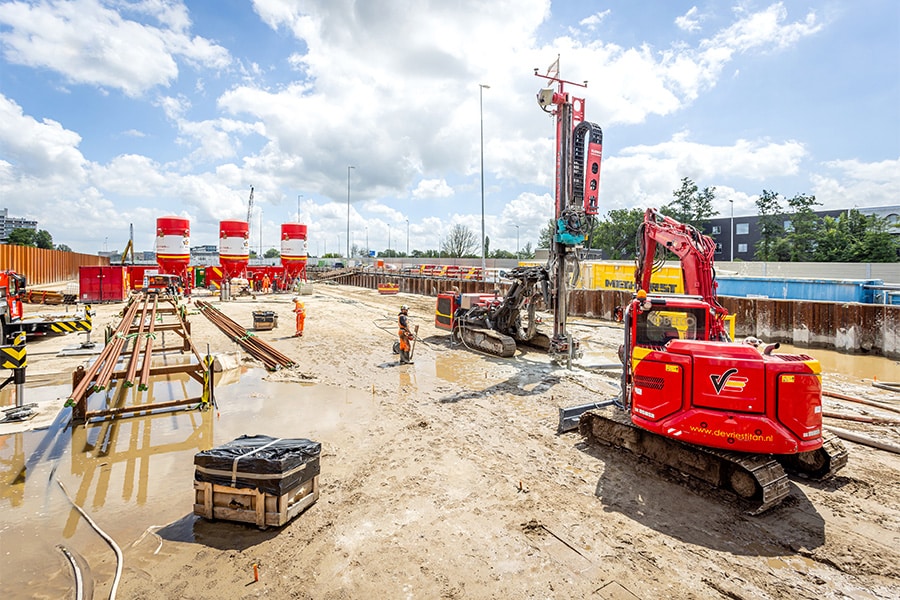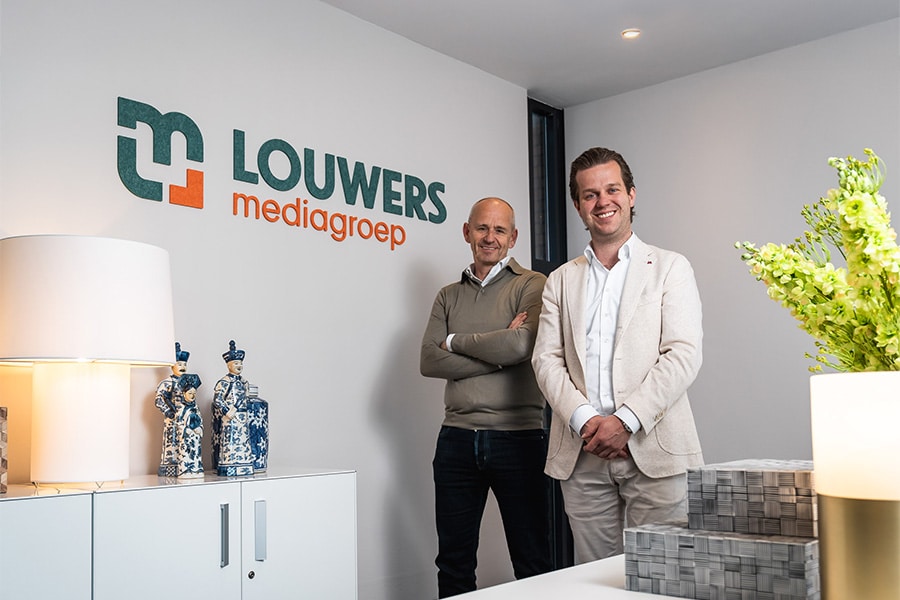
BC100 refers impossible probing to the past
Anyone about to sign the purchase contract for an auger or sounding machine probably has a good idea of its performance. Does it deliver high productivity and are the field tests promising? Yet there are manufacturers who want to deliver even more than that. Royal Eijkelkamp is one such party. It works year after year on the products that are truly innovative and good for their users. Its machine factory makes the impossible come true.
Royal Eijkelkamp already has a respectable age. The company was founded in 1911 by Hendrik Eijkelkamp, a man with two right hands. Together with Professor Edelman, his son Jan Eijkelkamp developed the hand auger for taking soil samples quickly. This tool made soil investigations considerably easier. Apparently he was not the only one who thought so, either. To this day, some 10,000 hand augers are sold every year. Moreover, it was the first research tool of Royal Eijkelkamp, a company that now provides the total solutions for soil and water research worldwide.

Devices with more features
After the hand auger, more devices for soil research followed. "The hand auger is suitable for investigations up to five meters," says Rutger van Goethem, belonging to the fourth generation of Eijkelkamp. "Then followed the sonic drill with a range of up to 400 meters. Since about two years we have also been working on sounding machines. And in addition, we offer many products for soil and water research."
CPTs
A new step was the development and construction of sounding machines. These push a probing cone into the soil. The sensors in the cone indicate the hardness of the soil from which the cone uses a sensor to determine the hardness of the soil. "There was a need for a machine that could determine the condition of deeper layers," Van Goethem knows. "Contractors wanted to be able to calculate the foundation for their structures, and water boards wanted to be able to determine whether dikes were strong enough to withstand high water levels. In all these cases, the CPT offered a solution."

The innovative BC100
Looking back, each step was one toward the BC100, a new concept sounding machine. This is a tracked vehicle that allows high-frequency sonic vibrations to be deployed when desirable. "We are talking about around 150 vibrations per second. The effect of these high-frequency vibrations is that friction of the soil with the sounding rod is eliminated and there is more opportunity to push through hard soil. This allows probing even in difficult soil.
Impossible soundings are thus a thing of the past." Special software takes care of processing and filtering the vibrations from the data, so that a good picture is created again.
Divergent application possibilities
Companies and organizations want to know all about the applications of the BC100. "There is a lot of demand for research on the railroads. The intensive use of the Dutch rail network affects the soil under the roadway and vibrations can then cause subsidence. It took a lot of effort to comply with European regulations before the BC100 was allowed onto the track at all, but now it is frequently used to inspect the subsoil of tracks."

Focus on the customer
The search for ProRail fits seamlessly with the change process that Royal Eijkelkamp has initiated. Whereas the main focus was on the performance of machines, Royal Eijkelkamp now responds optimally to customer requirements. Especially for this purpose, departments that previously operated separately have been merged. This gives more strength to R&D, Engineering and the Service Department. The R&D department anticipates what the customer will need in two to five years. The new engineering department focuses on what the customer needs now, and the service department focuses on service and after-sales. Van Goethem: "This has already produced many innovative ideas. For example, all Eijkelkamp machines now have an Eijkelkamp Service Assistant or 'ESA', a built-in computer that indicates when and where service is needed. Our supplies are adjusted accordingly. We also look at what a customer really needs. Sometimes a customer is better served by long-term rental of a machine than buying it."
Water research
In addition to machinery, Royal Eijkelkamp is engaged in smart solutions for water research. Sensors that customers in the
soil or surface water sites show exactly how much water there is and its quality. "Right now there are many studies on water pollution. Placing sensors in the soil reveals how contaminants move. Those same sensors also lend themselves to examining the effects of water withdrawal. What happens if we constantly extract water from the soil for such purposes as irrigation and drinking water, in short, if demand exceeds supply? In sea areas, we then see the voids being filled by seawater, causing salinization and making land unsuitable for agriculture. Our sensors demonstrate this hair-trigger."

Sustainable in the broad sense of the word
Despite its respectable age Royal Eijkelkamp's spirit is young and inquisitive. The experience of the older guard combined with the strength of young talents makes Royal Eijkelkamp ironclad. "The company is at the center of society; concerned with things that matter. Just think about climate change, CO2 reduction and the search for sustainable, environmentally friendly solutions. The dedication to its employees also fits into this picture. If you have a cool idea that fits within the goals of the company, you are always heard. Partly because of this, we are also a loyal club," Van Goethem realizes. "Everyone wants to stay here. The same goes for me. I can continue to grow here - just like the company."



